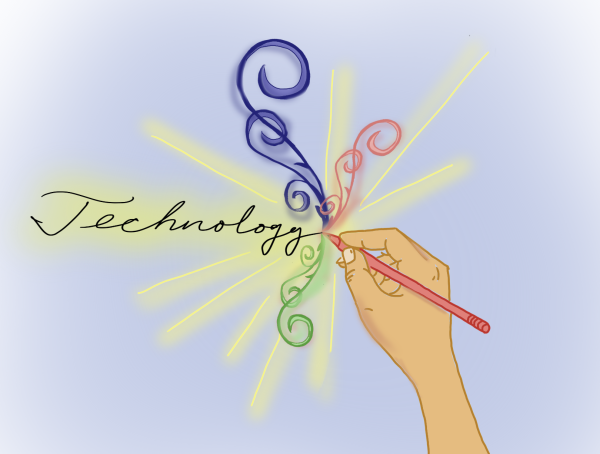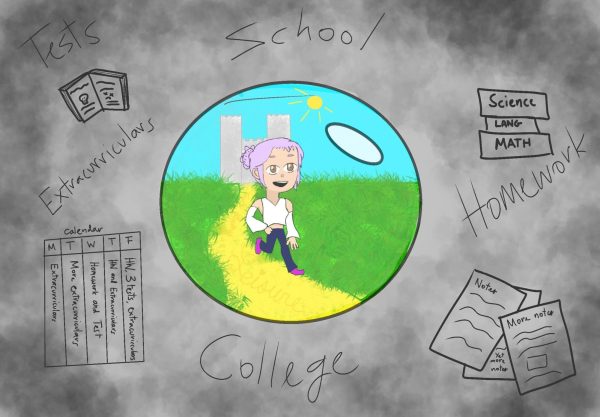The Garlick Press: Boring is brilliant
Running from free-time is fighting creative freedom

It happened again. The weekend has arrived, and I have no plans for Sunday. I have finished all my homework and went on a bike ride, but there is no avoiding the inevitable hum-drum of the late afternoon. Even though I plan to keep myself occupied by hanging out with friends, it always seems to pop up: boredom.
Don’t get me wrong, I love to unwind after a long day. But when I am stuck in my house for longer than five hours, I start to go stir-crazy and I have always wondered why.
You may be thinking, I would pay to be bored right now I am so busy. That’s true; Generation X is very occupied. People have around 35 hours of leisure time each week, according to The Futurist. This may sound like enough, but fractured out this daily 5 hour slot can be taken up by organized sports, clubs and part-time jobs after school.
So yes, stumbling upon some free time may be rare, and very enjoyable.
But when the fast-paced energy comes to a still, what exactly do you do with it?
Sure, there’s always Netflix and Pinterest. According to Science Daily, most people go to the internet to ease boredom. Around 60 percent of teenagers will spend 20 hours a week glued to a screen. But what happens when that is not an option?
Apparently the average person will avoid sitting alone with their thoughts at all costs. In one study, men and women were left alone to ponder aimlessly, or give themselves an electric shock. 67 percent of the men and 25 percent of the women, according to Psychology Today.
These people were so uncomfortable with simply thinking, they zapped themselves. I’m shook.
What most of us inattentive folks don’t know is we’re passing up a perfect opportunity to be our most creative selves.
Boredom has proven effective for imaginative thinking. According to a study from Pennsylvania State University, the bored participants performed better on creative tests than others who were relaxed, elated or distressed.
The same study also had a group of 80 participants copy numbers (yawn) while brainstorming ideas of what to do with plastic cups. Their ideas were more creative than groups which didn’t compute numbers.
This explains why we all have great ideas while doing monotonous tasks. Nikolas Tesla didn’t come up with water displacement theories in the laboratory, he came up with it while going on a stroll. J K Rowling came up with the idea of Harry Potter on a train ride.
Forced to do nothing but let our mind wander, we are free to explore our most creative journeys.
Letting yourself have free time is healthy, but letting yourself have time to think about absolutely nothing is better.
We always hear about meditation, and we usually picture a monk crossed legged in the middle of a jungle muttering omm for hours on end. What most don’t know is just clearing your thoughts and focusing on the present constitutes as meditation.
So how does this all tie into boredom? For some reason when we are left with no other option against our will, we turn against these natural, healthy and enjoyable practices for our brain.
It is important to slow your thoughts throughout the day to avoid overextending your mind and letting yourself rest from the constant flying of ideas. Hacking into your creativity when you have nothing to do can be easy, you just need to let it happen by being aware of the present and drifting into your thoughts without fighting it.










